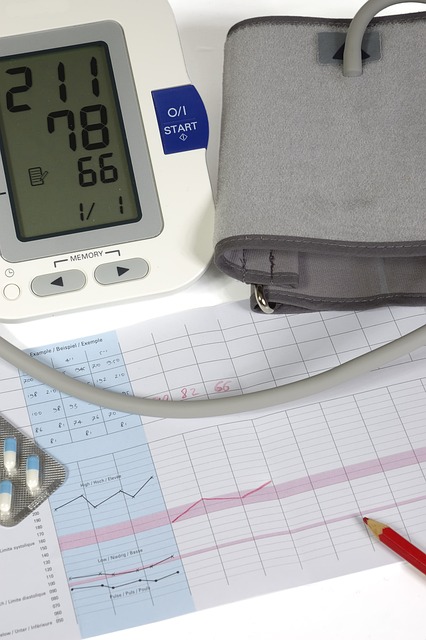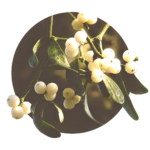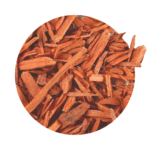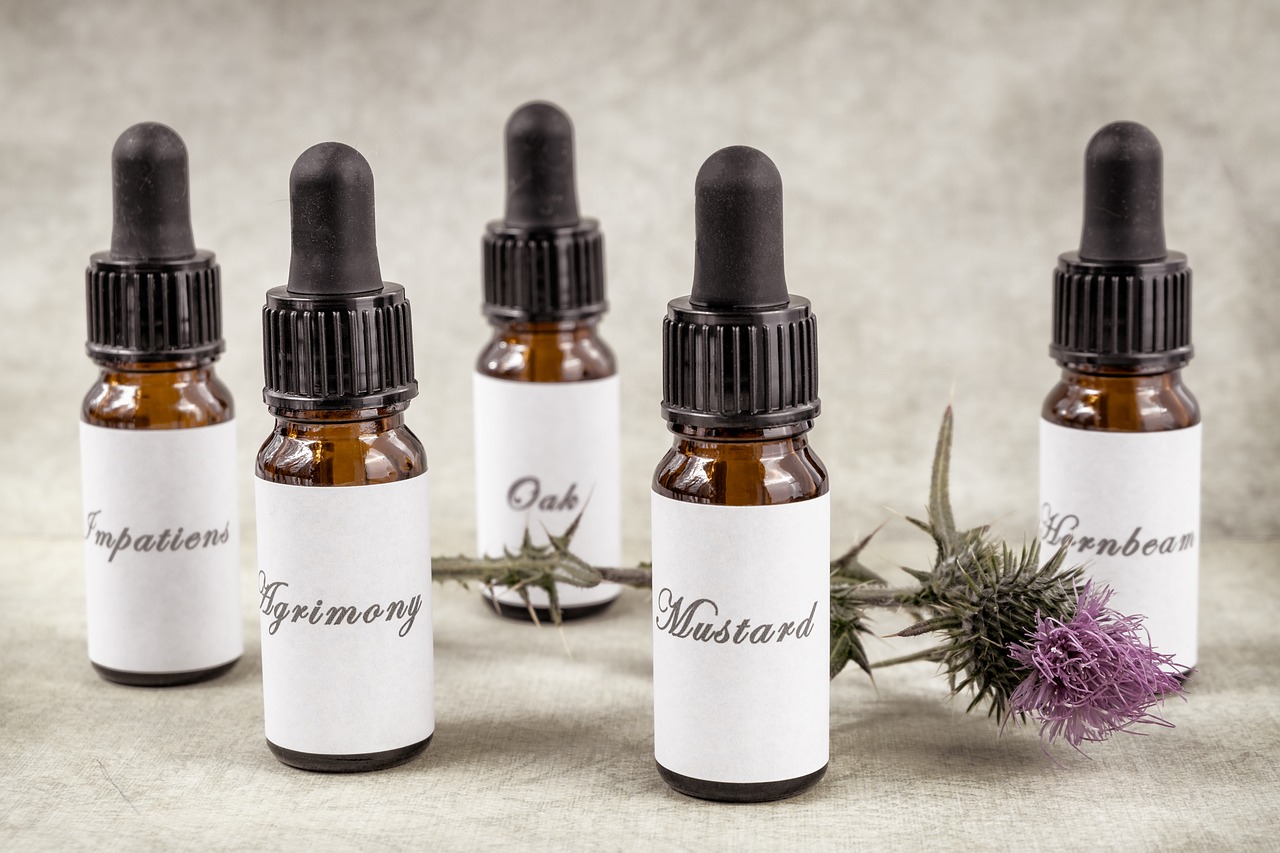Table of contents
1 What is high blood pressure or arterial hypertension?
High blood pressure, also known as arterial hypertension, is a chronic disease in which the pressure in the arteries is permanently above normal values. The World Health Organization (WHO) defines high blood pressure as a systolic blood pressure of over 140 mmHg and/or a diastolic blood pressure of over 90 mmHg. This condition can go unnoticed for a long time, as it often causes no noticeable symptoms, but still poses considerable health risks.
Systolic and diastolic blood pressure

Blood pressure is measured in two values: systolic and diastolic blood pressure. These two values provide information on how much pressure the blood exerts on the walls of the arteries as it flows through the body.
Systolic blood pressure
Systolic blood pressure is the upper value of the blood pressure measurement and measures the pressure in the arteries when the heart beats and pumps blood into the arteries. This value is crucial as it indicates how hard the heart is working to transport blood around the body. A systolic reading of over 140 mmHg is considered high and indicates high blood pressure. High systolic values can increase the risk of cardiovascular disease, as the increased pressure can damage the arterial walls and lead to arteriosclerosis.
Diastolic blood pressure
The diastolic blood pressure is the lower value of the blood pressure measurement and measures the pressure in the arteries when the heart relaxes between beats. This value shows how much resistance the arteries put up to the blood flow during the resting phase of the heart. A diastolic value of over 90 mmHg is considered high and also indicates high blood pressure. High diastolic values can lead to long-term damage to the arteries and organs, as the continuously increased pressure puts a strain on the blood vessels.
That around a quarter of the world's population suffers from high blood pressure and that this figure could rise to 1.5 billion people by 2025? In Germany, high blood pressure is the number one risk factor for cardiovascular disease, which is the most common cause of death. It is alarming that 30 % of those affected are unaware of their condition, while 88 % of those diagnosed are receiving treatment and three quarters of them achieve good blood pressure values.
2. causes and risk factors of high blood pressure
High blood pressure, also known as arterial hypertension, can be triggered by a variety of causes and risk factors. A distinction is made between primary and secondary hypertension.
Primary hypertension
Primary hypertension, also known as essential hypertension, accounts for around 90-95 % of all cases of high blood pressure. The exact causes are often unknown, but genetic predisposition, environmental factors and lifestyle are thought to play a role. Factors such as a family history, increasing age and ethnicity can increase the risk.
Secondary hypertension
Secondary hypertension occurs less frequently and is the result of an underlying disease. The most common causes include kidney disease, hormonal disorders (e.g. hyperthyroidism or adrenal gland disorders), sleep apnea and the use of certain medications. Treating the underlying condition can often normalize blood pressure.
Risk factors
There are several risk factors that can contribute to the development of high blood pressure. Here are the most important ones:
Overweight
Being overweight and obese significantly increases the risk of high blood pressure. A higher body weight means that the heart has to work harder to pump blood around the body, which increases the pressure in the arteries. Fatty tissue requires additional blood supply, putting more strain on the heart. Losing weight can help lower blood pressure and improve overall cardiovascular health. Even moderate weight loss can have significant positive effects on blood pressure.

Lack of exercise
An inactive lifestyle can lead to weight gain and increase blood pressure levels. Regular physical activity helps to strengthen the cardiovascular system and lower blood pressure. Aerobic exercise such as walking, jogging, swimming and cycling improves heart function and promotes blood flow. Strength training can also be beneficial as it increases muscle mass and boosts metabolism. Just 30 minutes of moderate exercise most days of the week can significantly lower blood pressure.

Anti-Stress
Chronic Anti-Stress can increase blood pressure in the short term and, if not managed, can lead to high blood pressure in the long term. Stress causes a release of hormones such as adrenaline and cortisol, which cause the heart to beat faster and blood vessels to constrict. Stress management techniques such as meditation, yoga and breathing exercises can be helpful in reducing stress levels and thus controlling blood pressure. Regular breaks, sufficient sleep and a good work-life balance are also important factors in reducing stress.
Smoking
Smoking damages the blood vessels and leads to a narrowing of the arteries, which increases blood pressure. Nicotine also increases blood pressure in the short term, which can lead to chronically high levels if consumed regularly. The chemical substances in tobacco smoke contribute to inflammation and damage to the blood vessel walls, which promotes the development of arteriosclerosis. Quitting smoking not only improves blood pressure, but also general health and drastically reduces the risk of cardiovascular disease.
High salt consumption
A high-salt diet can increase blood pressure, as salt influences the body's water balance and increases blood volume. A high salt intake causes the body to retain water, which increases blood volume and therefore blood pressure. Reducing salt consumption can help to lower blood pressure. It is recommended to limit salt intake to less than 5-6 grams per day. Processed foods often contain hidden salt, so it is important to pay attention to labels and favor fresh, unprocessed foods.

These risk factors are often interlinked and can reinforce each other. A healthy lifestyle with a balanced diet, regular exercise and stress management can help to reduce the risk of high blood pressure and improve existing levels.
3. symptoms and complications of high blood pressure
High blood pressure is often referred to as the "silent killer" because it often causes no noticeable symptoms and can therefore go unnoticed for a long time. Nevertheless, it can cause serious health complications if left untreated.
Early and advanced symptoms of arterial hypertension
Early symptoms
In the early stages, high blood pressure often causes no specific symptoms. Some sufferers experience non-specific symptoms such as
- Headaches, especially in the morning
- Dizziness and balance disorders
- Fatigue and weakness
- Nosebleed
These symptoms are easily overlooked or attributed to other causes, which is why regular blood pressure measurements are important.
Advanced symptoms
If the high blood pressure remains untreated for longer and continues to rise, the symptoms can worsen and become more pronounced:
- Palpitations or irregular heartbeat
- Nausea and vomiting
- Visual disturbances, such as blurred vision or double vision
- Shortness of breath, especially during physical exertion
- Chest pain
These advanced symptoms require immediate medical attention as they may indicate serious complications.
Long-term effects
High blood pressure can lead to serious health complications if it is not controlled:
- Heart attackThe high pressure in the arteries can damage the walls of the blood vessels, leading to the formation of plaques and arteriosclerosis. These plaques can narrow the arteries and block the flow of blood to the heart, leading to a heart attack.
- StrokeHigh blood pressure can weaken or damage the blood vessels in the brain, which can lead to a stroke. This happens either by the rupture of a vessel (hemorrhagic stroke) or by the blockage of a vessel (ischemic stroke).
- Kidney damageThe kidneys are sensitive to changes in blood pressure. Chronically high blood pressure can damage the blood vessels in the kidneys, which impairs kidney function and can eventually lead to kidney failure.
- Eye damageHigh blood pressure can damage the blood vessels in the eyes and lead to loss of vision or blindness.
- Increased dementia ratesUntreated high blood pressure can also damage the blood vessels in the brain, which increases the risk of dementia and cognitive impairment.
By recognizing and treating high blood pressure, these serious complications can often be avoided or at least delayed. In the following sections, we will look at natural methods to reduce high blood pressure and give you practical tips to improve your health.
4. natural methods for lowering high blood pressure
Arterial hypertension can often be lowered through simple lifestyle changes and daily habits. Here are some natural methods that can help control and lower blood pressure in a healthy way.

Foods to lower blood pressure
A healthy diet plays a crucial role in controlling blood pressure. Certain foods can help to lower blood pressure:
- Fruit and vegetablesEspecially those that are rich in potassium, such as bananas, oranges and spinach, help to regulate blood pressure.
- Wholemeal productsWhole grain rice, oatmeal and whole grain bread contribute to general health and can lower blood pressure.
- Fatty fishSalmon, mackerel and tuna are rich in omega-3 fatty acids, which have an anti-inflammatory effect and can lower blood pressure.
- Nuts and seedsAlmonds, walnuts and linseed contain healthy fats and important nutrients.

Physical activity to regulate blood pressure
Regular physical activity is one of the most effective ways to lower blood pressure and improve heart health. Recommended activities include:
- Aerobic trainingActivities such as walking, jogging, swimming and cycling can lower blood pressure and improve cardiovascular health.
- Strength trainingExercises such as weight lifting can also help control blood pressure if done regularly.
- Stretching exercises and yogaThese promote flexibility, reduce stress and can help to lower blood pressure.
A combination of aerobic and strength training, ideally for at least 30 minutes most days of the week, can help control blood pressure
Stress Management
Stress can increase blood pressure in the short term and lead to chronic high blood pressure in the long term. Effective stress management techniques are:
- Meditation and mindfulnessThese practices help to calm the mind and reduce stress levels.
- Deep breathing and breathing exercisesThese techniques can help to lower the heart rate and reduce blood pressure. Breathing exercises also improve heart rate variability.
- Yoga and Tai ChiThese exercises combine physical movement with breathing techniques and meditation to reduce stress and improve blood pressure levels.
By integrating these natural methods into everyday life, many people can effectively lower their blood pressure and improve their general health.

Salt reduction
A high salt intake can increase blood pressure. It is recommended to reduce salt intake by eating less processed foods and favoring fresh, unprocessed foods. Spices and herbs can be used as a substitute for salt to improve the taste of food without increasing blood pressure.
5. medicinal plants and alternative therapy approaches
Natural remedies and alternative therapy approaches can be an effective complement to the treatment of high blood pressure. These methods aim to lower blood pressure naturally while promoting general well-being.
The most important medicinal plants to treat hypertension
The Coffee Bush has a regulating effect on the stress nervous system. In the spagyric form, it helps to increase stress resistance and reduce nervousness, which has a positive effect on blood pressure. This calming effect is particularly helpful as stress is a significant factor in high blood pressure.
Masterwort strengthens the circulation and stabilizes the heart. It improves blood flow and increases the flexibility of blood vessels, which can lead to a reduction in blood pressure. Its anti-inflammatory properties support overall cardiovascular health and help to regulate blood pressure naturally.
Yohimbe dilates the blood vessels and supports blood flow to the heart muscle. The vasodilation lowers blood pressure by reducing vascular resistance. Yohimbe improves heart function and reduces the risk of cardiovascular disease, making it an effective natural remedy for high blood pressure.
Alternative approaches to high blood pressure
Spagyric
The Spagyric is a holistic method that views the human being as a unity of body, mind and soul. Spagyric preparations are made from natural ingredients and aim to promote inner balance and activate the body's self-healing powers.
Our spagyric preparation Hypertension complex contains a careful selection of medicinal plants that work synergistically to regulate blood pressure.
With natural methods, such as the individual spagyric mixtures from Zimply Natural, your complaints can be relieved naturally and sustainably.

The application of your High blood pressure sprays is very simple: the spray is simply sprayed into the mouth according to the dosing instructions on the bottle. In order to achieve the best possible effect and to be able to optimally counteract the causes, we recommend using the spray over a longer period of six to eight weeks. As a kind of cure, you spray 3×3 sprays daily.
Acupuncture and acupressure
Acupuncture and acupressure are traditional Chinese healing methods that harmonize the flow of energy (Qi) in the body. Both techniques aim to reduce stress and influence the autonomic nervous system by placing needles (acupuncture) or applying pressure (acupressure) to specific points on the body. Studies have shown that these methods can help to lower blood pressure by relaxing blood vessels and improving circulation. Regular applications can help stabilize blood pressure and promote general well-being.

Learn more about the causes, risks and natural treatment methods of high blood pressure in our webinar with naturopaths Tobias Eisenkolb. Tobias shares his extensive knowledge and gives practical tips on how you can lower your blood pressure naturally.
6. FAQ: Questions and answers on the subject of high blood pressure
What are the normal values for blood pressure?
Normal blood pressure values are a systolic value of less than 120 mmHg and a diastolic value of less than 80 mmHg. Values between 120-129/80-84 mmHg are considered normal-high, while values of 130-139/85-89 mmHg are classified as high-normal. Hypertension is diagnosed when blood pressure is consistently above 140/90 mmHg.
Can weight loss lower blood pressure?
Yes, weight loss can significantly lower blood pressure. Even a moderate weight reduction of 5-10 % of body weight can noticeably improve blood pressure. A healthy lifestyle with a balanced diet and regular exercise is crucial for sustainable weight loss and blood pressure control.
How does sleep affect blood pressure?
Poor or insufficient Sleep can increase blood pressure. Lack of sleep and sleep disorders, such as sleep apnea, are associated with a higher risk of high blood pressure. Good sleep hygiene and treatment of sleep disorders can help to control blood pressure.
Is it safe to treat high blood pressure using only natural methods?
Natural methods can be an effective supplement for treating high blood pressure. However, it is important to consult a doctor before relying solely on natural remedies. In many cases, a combination of natural methods and medical treatment may be most effective.
Can caffeine increase blood pressure?
Yes, caffeine can increase blood pressure in the short term, especially in people who are sensitive to caffeine. It is recommended that you moderate your caffeine intake and monitor your blood pressure regularly if you consume caffeinated drinks.
















